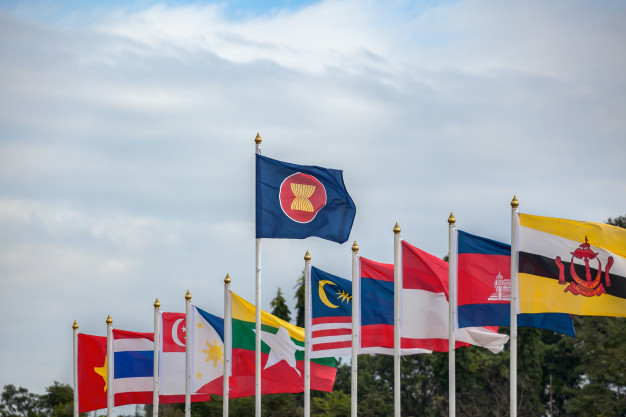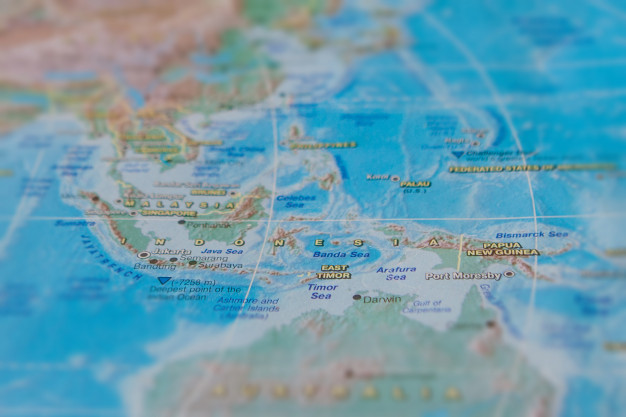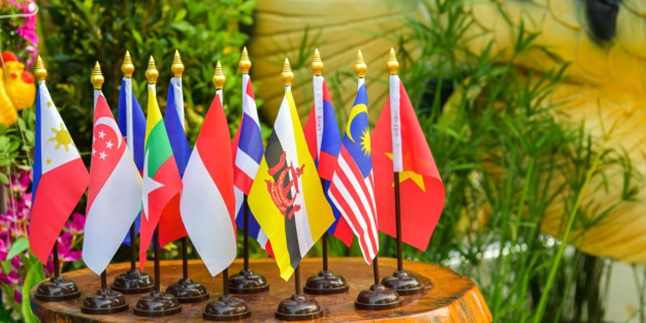Kapanlagi.com - As a sovereign country, Indonesia is also involved in global affairs. Indonesia establishes cooperation with countries around the world. In this regard, Indonesia is currently conducting foreign political affairs. Similar to domestic affairs, the constitutional basis of Indonesia's foreign policy is the Constitution.
While conducting foreign political policies, Indonesia is known for its free and active strategy. With a free and active foreign policy, Indonesia stands as a sovereign country, not siding with any particular power or axis. Especially, powers that contradict the identity and principles of the Indonesian nation.
The constitutional basis of Indonesia's foreign policy is the Constitution. Meaning, every activity related to foreign politics will be done carefully and not deviate from the mandate of the Constitution. In addition, Indonesia also continues to show its identity as a nation that upholds the values of Pancasila.
The constitutional basis of Indonesia's foreign politics is the Constitution, what is the more in-depth explanation? Read the review quoted from liputan6.com, below.
1. Understanding the Essence of International Relations

(credit: freepik)
The foreign policy of a country is closely related to activities in international relations. Therefore, to understand the constitutional basis of Indonesia's foreign policy, which is the Constitution, we also need to know the essence of international relations. Generally, there are three fundamental points in international relations.
The three fundamental points of international relations are actors (states and non-states), interest (interests), and power. These three points are interconnected and cannot be separated. In fact, with these three points, interactions in international relations can take place.
Furthermore, the presence of these three important points will also facilitate the process of unifying the goals of cooperating countries. Conversely, the absence of one aspect can disrupt the process of interaction and goal unification. This means that the interests and goals of countries will not reach a common point.
2. Indonesia's Foreign Policy in International Relations
The constitutional foundation of Indonesia's foreign policy is the Constitution. In addition, as mentioned earlier, Indonesia implements the free and active strategy in conducting its foreign policy. This strategy can also be adjusted to the three essences of international relations.
The integration of Indonesia's free and active foreign policy and the three essences of international relations will form an identity in international relations activities. Moreover, this makes Indonesia have a different role compared to other countries.
With the free and active strategy, Indonesia will become an independent country and free from dependence on other countries. In addition, Indonesia also becomes a more flexible country in establishing relations with various countries and implementing the three elements in international relations.
3. The Objectives of Indonesia's Foreign Policy

(credit: freepik)
In conducting foreign policy, Indonesia always adheres to the country's legal foundation. That is why the constitutional basis of Indonesia's foreign policy is the 1945 Constitution. Indirectly, this also influences the objectives of Indonesia's foreign policy. The law as the foundation of the state is formulated by incorporating aspirations from the past and future.
The objectives of Indonesia's foreign policy are concretely formulated based on a formula designed according to national interests, while still considering the world situation. This allows Indonesia to project its power more easily in achieving those objectives.
In achieving these objectives, national strength becomes one of the important factors to be considered. The strengths involved include military, political, geographical conditions, population size and quality, economy and national resources, as well as the state's ideology. These strengths can serve as tools for Indonesia in achieving its foreign policy objectives.
4. The Constitutional Basis of Indonesia's Foreign Policy is the 1945 Constitution

(credit: freepik)
In international relations activities, Indonesia as a country positioned as an actor. With its role in upholding the principle of active non-alignment, Indonesia becomes an actor with strength in international relations.
Based on this strategy, Indonesia becomes a fully sovereign country in the international arena. Indonesia has the right to determine its way of life, with which country to establish cooperation. However, in its implementation, Indonesia still adheres to the constitutional basis of the Constitution and Pancasila. That is why the constitutional basis of Indonesia's foreign politics is the Constitution.
By adhering to the Constitution, Indonesia carries out foreign politics with the free-active strategy that still relies on the ideology of Pancasila. This means that the values of Pancasila also become the guiding principles and identity of Indonesia in establishing international relations with other countries in the world.
In addition, the constitutional basis of Indonesia's foreign politics, the Constitution, is also reflected in the preamble and body of the 1945 Constitution. This is stated in several points below:
1. Protecting the entire Indonesian nation and all its descendants.
2. Advancing the public welfare.
3. Educating the nation's life.
4. Participating in maintaining world order based on independence, eternal peace, and social justice.
That is the review regarding the constitutional basis of Indonesia's foreign policy, which is the Constitution. Hopefully, it is useful and can increase knowledge.
(kpl/psp)
Disclaimer: This translation from Bahasa Indonesia to English has been generated by Artificial Intelligence.















